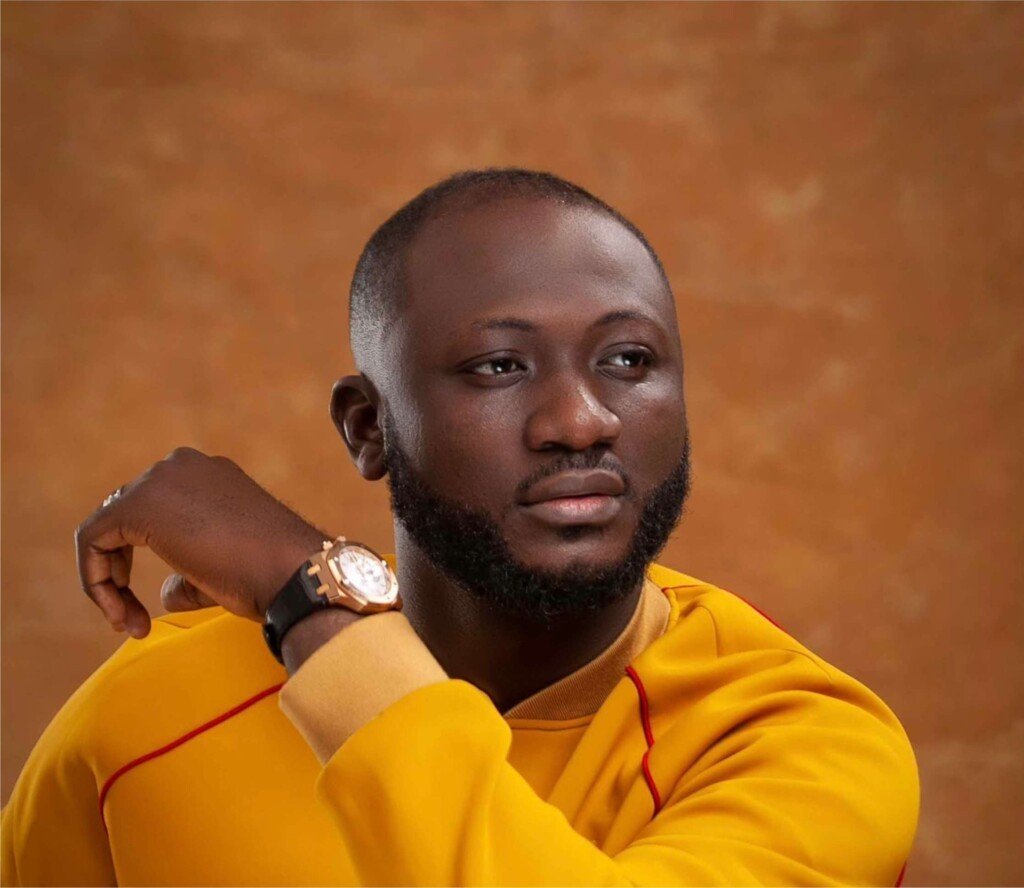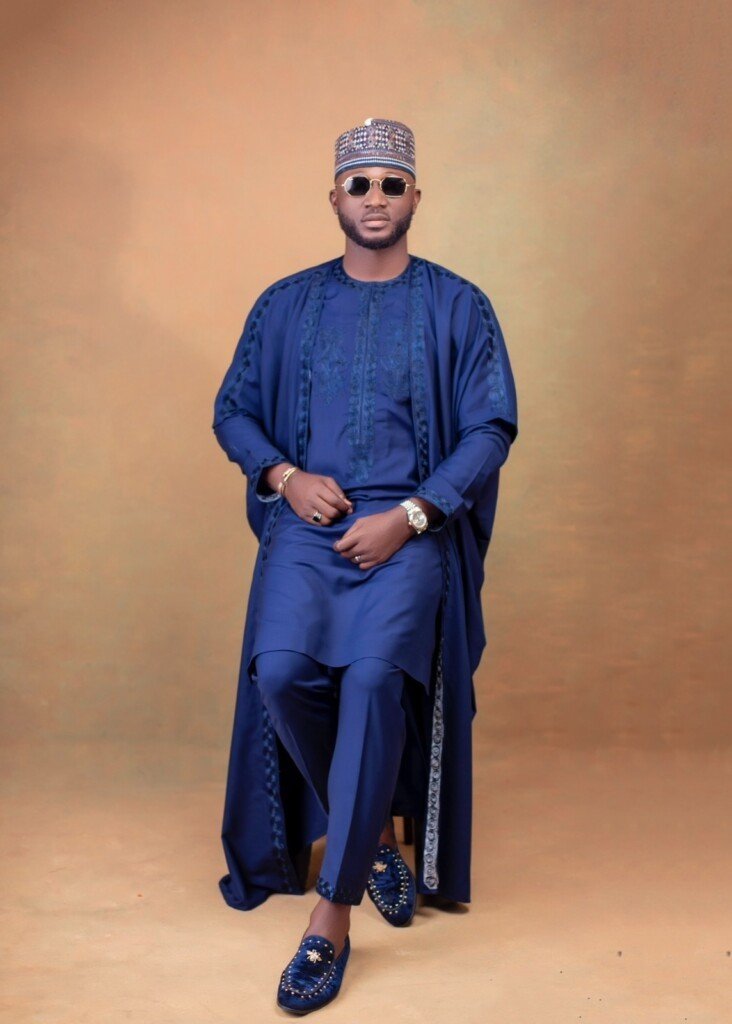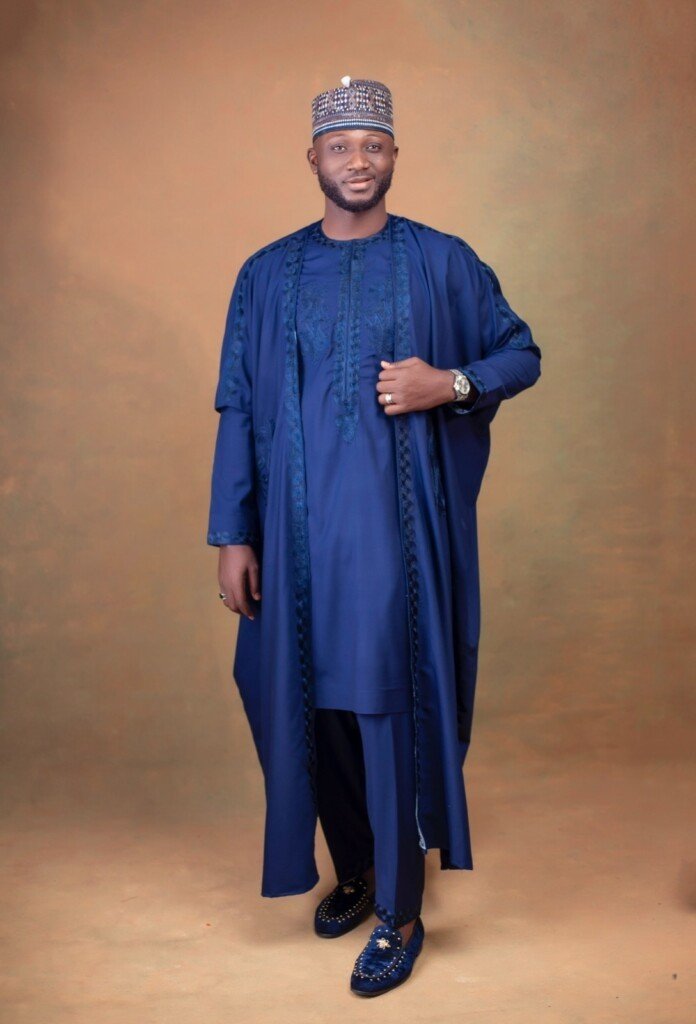
Step onto the illustrious stage of Nigerian cinema and you’ll find a figure whose presence resonates far beyond the silver screen. With two decades of remarkable contributions to the industry, Uzee stands as a towering figure, weaving tales of passion, resilience, and artistic brilliance into the fabric of Nigerian cinema. Known for his captivating performances and visionary productions, Uzee has carved a legacy that transcends mere entertainment, shaping the cultural landscape of a nation.
In this exclusive interview with GABI, we delve into the depths of Uzee’s illustrious career, exploring the milestones, challenges, and triumphs that have defined his journey in the movie industry. Beyond his cinematic prowess, Uzee offers profound insights into the role of government in Nigeria’s burgeoning film sector, shedding light on the transformative impact of supportive policies and infrastructure investments. Prepare to be inspired!
WHO IS UZEE USMAN? WALK US THROUGH THE JOURNEY.
In 2003, I started my journey in the film industry as a PA. I faced my fair share of challenges, To learn special effects, I went to South Africa and returned as a makeup artist. However, I soon transitioned to the role of Production Manager and then eventually became a producer in 2010. My first movie, “Under”, was shot in Ghana with Toronto Dikeh and Frank. In my way of giving back to my Northern community Nigeria, I started directing Northern films to unify the movie industry, bringing together Kannywood and Nollywood.
“My aim was to bridge the gap between the Northern and Southern film industries. To achieve this, I produced films that brought A-list actors from Lagos to the North. One of my successful productions was “Oga Abuja” featuring Mr. Ibu, Ibro, Aminu, and other Northern stars. Following this, I produced “MAJA” with Osofia and Northern stars, and “Hassana da HUSAINNA” with Patience Ozokwor, who I brought to the North. I won Best Film at the AMVCA in 2014 for one of my productions. Later, I ventured into acting with “Voiceless,” a Boko Haram film that earned me a nomination for Best Actor at the Africa Magic Viewers’ Choice Awards in 2020 and 2022. Although I didn’t win the award in 2022, I was honoured to be nominated.

HAVE YOU ALWAYS KNOWN THAT YOU WOULD ACT?
Yes! In 2003, I came into the entertainment industry with the intention of becoming an actor. At that time, I came from Kaduna to Lagos to attend auditions. However, I was met with scepticism from those around me due to my young age and lack of experience. Despite this, my passion for acting burned bright within me. I recall a particular director who advised me that I did not have the right look for the camera and suggested that I pursue a career behind the scenes instead. This led me to travel to South Africa to learn special effects and makeup, which I found to be a fulfilling and rewarding experience.
As time passed, my passion for acting waned, and I began to focus more on working behind the scenes and producing films. However, in 2017, I was allowed to act again in the film Voiceless. It turned out to be a huge success, both domestically and internationally.
WHY WAS THERE A BRIDGE BETWEEN TRIBES IN NIGERIA THAT MADE PEOPLE NOT CROSS OVER AND JUST “ACT”?
The movies that I produce always have a message of unity. I want people to understand that in Nigeria, we are all one regardless of our religion or culture. When I started working in Kannywood (the Hausa film industry in Nigeria), there was not much collaboration with Nollywood (the larger Nigerian film industry). I thought that Hausa films should be known globally, and the best way to do that was to collaborate with Nollywood. By working together, we can tell stories of different tribes and religions coming together, which can help unite Nigerians. Films can play a crucial role in promoting unity in our country, especially at a time when there is so much division. We can use storytelling to show that people from different tribes can fall in love and marry each other without any problems.
IS THERE A NEED TO HAVE ENOUGH RESOURCES BEFORE JOINING THE MOVIE INDUSTRY?
It’s a 2 way thing, in a sense whereby, hands are not equal. Most of us came into the industry without having a penny because there’s a process in the industry. In the entertainment industry, some people have money and some don’t. Some people, like Charles, came into the industry with money and could bypass the usual process. They made good movies, and their movies sold well on platforms like Netflix. However, most people in the industry had to work their way up by following the usual process, which takes time and effort. If you have money and no game, you might not succeed, but if you use your money to make good movies and meet the right people, you can double your money. It’s important to participate in the learning curve and take your time, so you don’t have to worry when you finally make it big.
DO YOU THINK BOTH YOUNG AND OLD NEED TO BUILD ENTREPRENEURIAL SKILLS BEFORE OR AFTER JOINING THE INDUSTRY?
I think it’s a natural thing. “I believe that having entrepreneurial skills before entering any field is a natural advantage. As you begin to succeed, you can apply these skills to your day-to-day activities, which can help expand your network and production. As a serial entrepreneur, I have had the opportunity to meet investment bankers, solely because of my entrepreneurial ventures.”

WHAT ARE THE MAJOR CHALLENGES THAT PEOPLE WHO ARE CURRENTLY IN THE NEW INDUSTRY FACE FROM YOUR EXPERIENCE?
Intimidation is a big issue that many people face, but it’s important to remember that everyone’s challenges are different. What I consider as a challenge might not be challenging to someone else. So, if you are just entering the industry you need to be patient because you will face intimidation and bullying, especially from people who may want to take advantage of you, particularly women. However, it’s essential to find balance and not fight everyone who rejects you. You should know what you don’t want, but also understand that someone else may want it and use it to their advantage.
One of the significant challenges in the industry is financing. In Nigeria, about 90% of filmmakers self-fund their projects, which can be quite expensive, running into millions. For instance, when producing a movie, if an actor decides to leave, it can lead to disagreements, fights, or even the actor going to the press, accusing the producer of intimidation or bullying. However, the actor fails to understand that the producer may have invested a lot of personal funds in the project, and their departure could jeopardize the entire project. Thus, it’s essential to have a balanced approach to avoid conflicts and misunderstandings.
LET’S TALK ABOUT FUNDING AND USING, “A TRIBE CALLED JUDAH” YOU ACTED IN AS AN EXAMPLE. WHAT SHOULD THE GOVERNMENT HAVE DONE?
It is common for governments to support film productions in other countries, but in Nigeria, the situation is different. Funke Akindele had to bear all the expenses alone. If the government had intervened, they could have reduced the prices of things she paid for or provided some services for free. For example, the government could have provided locations that she paid up to 50 million or 10 million Naira for, at no cost. This is a practice that is often done in other countries.
DO YOU THINK THAT THE GOVERNMENT NEEDS TO COME INTO THIS INDUSTRY?
“It’s important for the government to support us in fighting piracy because we are the only ones producing our content and battling against those who steal it. When there is no work available, we have to source our work and fund our own productions, which can be overwhelming. This is why some people get tired and leave the industry. Those involved in piracy often have connections and financial resources that allow them to continue their illegal activities. We need the government to provide support and grants to help us fight piracy. Loans should have 0% interest to make it easier for us to access funding. Many of my friends abroad receive government support to fund their projects. For example, a friend in London got a bank loan to shoot a movie. Government support is crucial to help us produce quality content and sanitize the industry. Funke’s project in “A Tribe Called Judah” was funded entirely with personal funds, which is not sustainable in the long run.

NIGERIANS PRODUCE A LOT, WHY DO YOU THINK THAT IS?
Let me give you an example of filmmaking between South Africa and Nigeria. In Nigeria, we produce a lot of content as filmmakers. We work hard to avoid being jobless. However, when I went to South Africa to film, I observed that their government’s assistance is beyond imagination. They do not pay for airport usage or police station usage. This is why their films come out remarkably well.
On the other hand, when I want to shoot in Abuja, I have to pay for airport usage. When we request to use the police station, we have to write many petitions and still do not receive approval sometimes. If we have to use any facility, we have to pay for it. This is why we limit our stories as filmmakers. The process of obtaining necessary items or locations is too tedious, and it limits our creativity. Many filmmakers have fantastic stories but cannot execute them due to the arduous process of obtaining necessary items or locations.
We have all the resources needed to compete with Hollywood, and I believe that we need good leaders, especially in the movie industry, to approach the government and open doors for these resources. In Africa, we are the leading consumers of content, and we need to make good use of the numbers.
HOW ABOUT TAXATION?
“We are currently facing triple taxation in Nigeria. As I speak, all actors have been notified to pay taxes in Lagos, regardless of employment status. It appears that taxes are being collected from all actors, whether employed or not.”
HOW HAS IT BEEN SO FAR SO GOOD, WITH COLLABORATION WITH EVERY ARTIST IN THE COUNTRY?
Working with people has become easy for me recently because I’ve become more sociable. Whenever I want to shoot a project, it’s a breeze. I’m currently planning a big project in Northern Nigeria about a collaboration between the Igbo and Hausa people. Everyone I speak to about the project is excited to work with me because my previous films have been successful. No one wants to work with someone mediocre. I have never been rejected for a project, and I’ve always found it easy to find collaborators.
WHAT ARE YOUR GUIDING PRINCIPLES THAT HAVE LED YOU THIS FAR?
My guiding principles are loyalty, dedication, focus, determination, and prayerfulness. I am loyal to the people who gave me the opportunity to succeed. I take them seriously and don’t joke around with them.
My boss, Mary Remi Njoku, is someone I hold in high regard, and I don’t joke around with her at all. She took me to another level in terms of production and believed in me when no one else did. She was the first person to fund my movie, and more important people like Funke Akindele , Kunle Afolayan, rogers Ofime, Vincent Okonkwo, Uchenna Mbunabo are a few of the people I don’t joke around with because they took chances on me, and I remain loyal to them. Even if they hurt me, I don’t get angry because they were there for me when I needed them the most in my career. I also believe that mentorship is essential in one’s personal and professional growth.
WHERE DO YOU SEE UZEE IN THE NEXT 10 YEARS?
On top of my career, at the Oscars
What benefits come with a LiveJasmin voucher?
How can I claim a LiveJasmin voucher?
Get Free Livejasmin Pro Membership with Unlimited Credits
Software Engineer, Artist, and Actor in Las Vegas
For all Livejasmin users who are looking for free VIP
private chat access without paying subscription, they must become premium or VIP member in which they
can also get unlimited credits coins tokens at no cost if they have Livejasmin Pro
membership badge
Credits tokens are required to access services like private live shows
on LiveJasmin
New members in Livejasmin can also get 9.99 free credits after their
first registration
However, this requires verifying your credit card
Simply verify your credit card after registration to receive 9.99 free credits
Livejasmin temporarily charges 1 credit and refunds it automatically
Livejasmin permits you to join with models and different customers on the positioning
Credits in Livejasmin can be utilized to have a private show along with your favorite model
Different Livejasmin credit packs are priced like this:
a. 17.99 credits = $35.99,
b. 27.99 Livejasmin credits cost US $54.99,
c. 67.99 Livejasmin credits cost US $120.99,
d. 97.99 credits = $177.99,
e. 157.99 credits = $283.99
Credits can be used for private tips to models in live shows
You cannot filter inbox messages; you must manually search
for a particular message
Read this article for more details on free
Livejasmin Pro membership